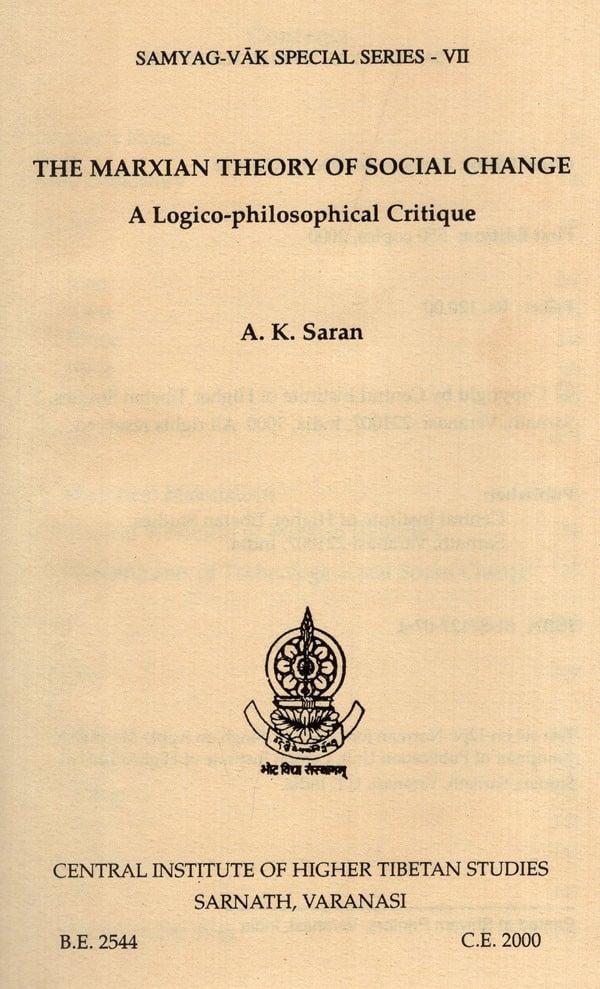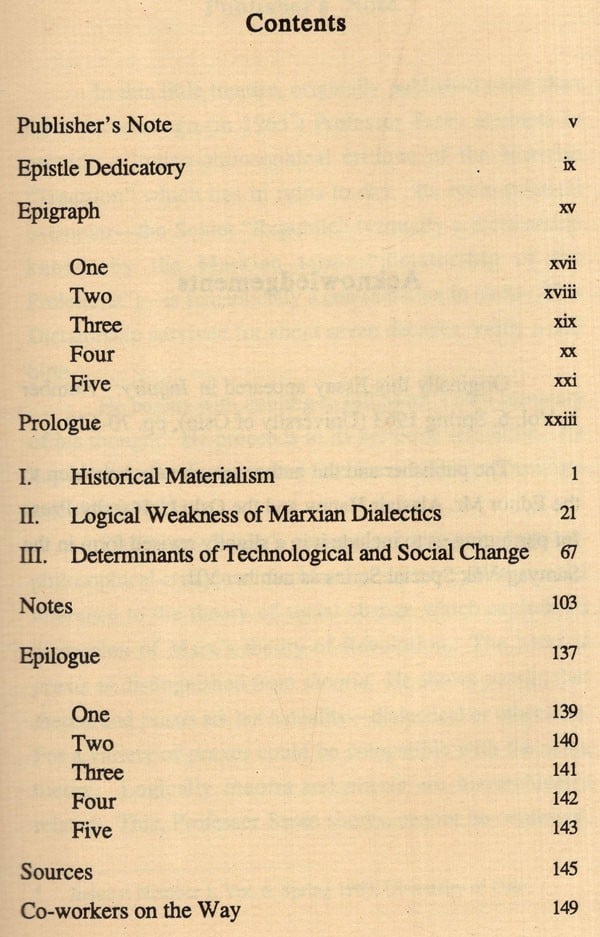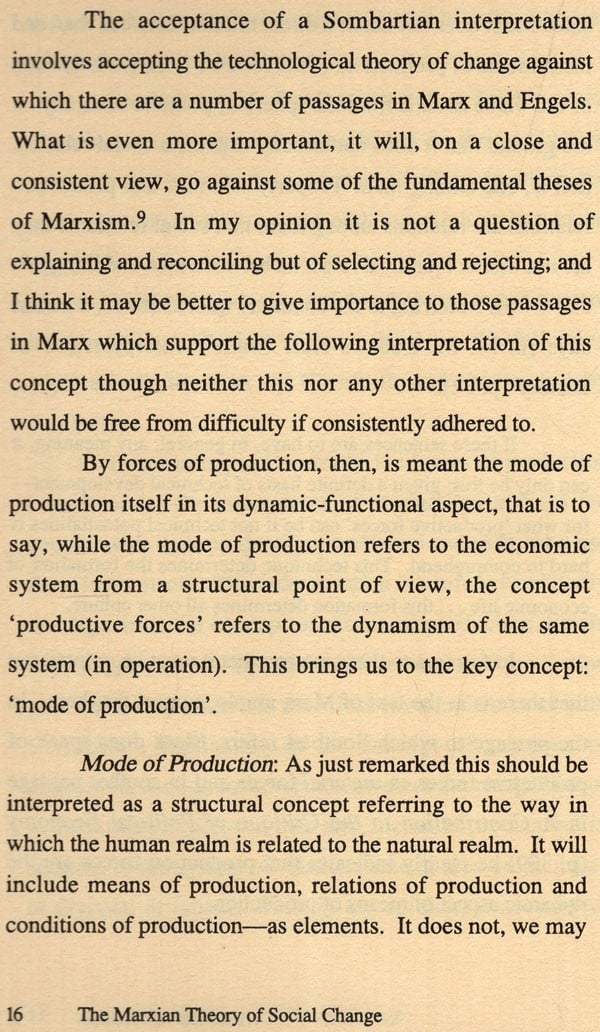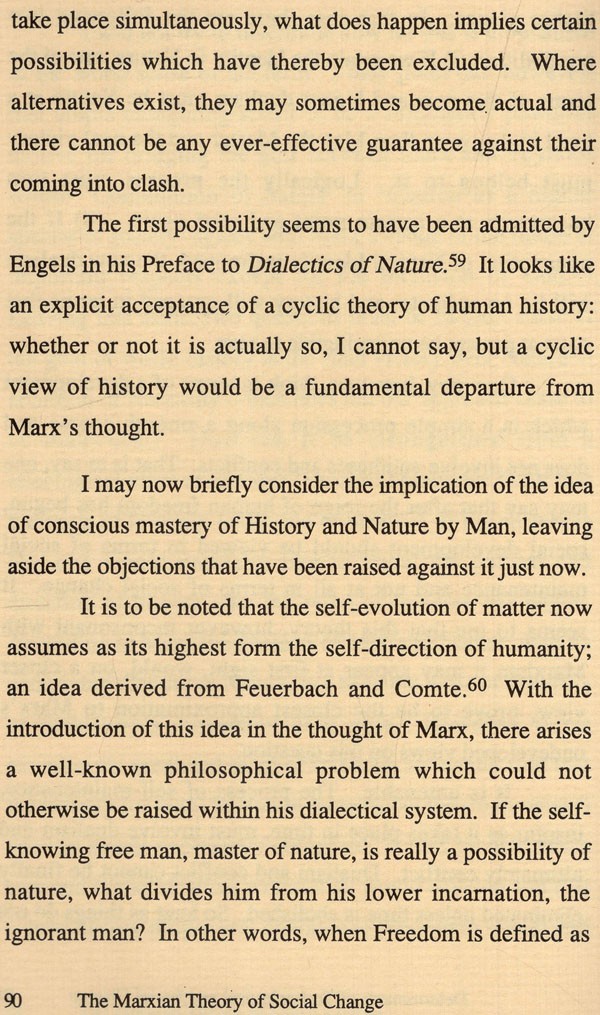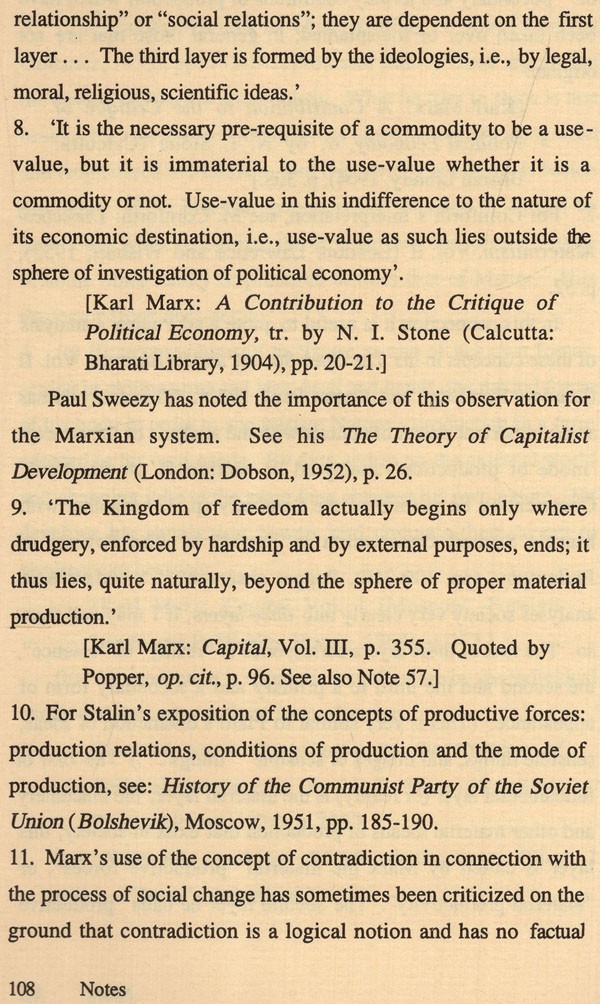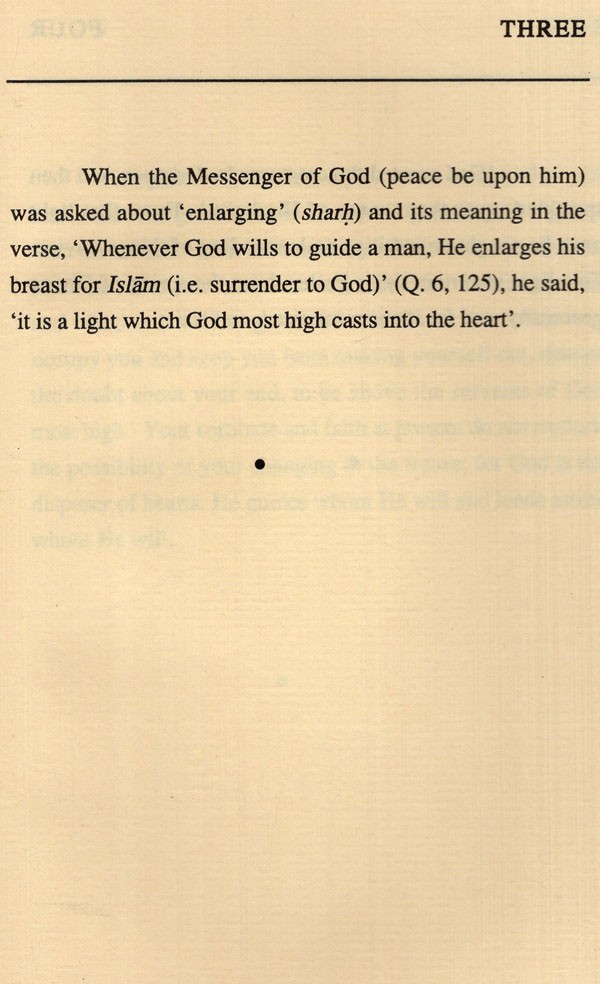
The Marxian Theory of Social Change- A Logico-Philosophical Critique (An Old and Rare Book)
Book Specification
| Item Code: | UAW995 |
| Author: | A. K. Saran |
| Publisher: | Central Institute Of Higher Tibetan Studies Sarnath, Varanasi |
| Language: | English |
| Edition: | 2000 |
| Pages: | 166 |
| Cover: | HARDCOVER |
| Other Details | 9.00 X 5.50 inch |
| Weight | 380 gm |
Book Description
The author attempts to provide a logico philosophical critique of the Marxian system of sociology with special reference to the theory of social change:
To every change in man-nature relationship (taken in conjunction with the techno logical order) corresponds an appropriate change in the human order, that is, in the system of social relations. This is the fundamental Marxian thesis regarding social equilibrium.
This, according to the author, reduces man to the level of a captive animal. The fundamental principal mistake of Marx is the rejection of the Hieros. Marx, thus, subordinates both nature and man to the non living antihuman forces.
It is argued that the ideas of 'mode of production' and 'social system' are basic to Marx and it is proved that his theory of base and superstructure rests mainly on confusion of conceptual orientations. This is connected with a fundamental idea of Marxism viz., that of a system without a transcendent centre.
The essay endeavours to prove that such an idea is logically untenable. Hence the Marxian laws of Transformation of Quantity into Quality and Negation of Negation are examined and showed to be logically flawed.
The author further discusses the question about the determinants of technological and eventually of social change. Three possible Marxian solutions are examined: (a) in terms of needs; (b) in terms of science and new ideas; and (c) in terms of the dialectic of nature and man. It is shown that none of these solutions can be consistent and valid without involving a trans-historical stand point: for, it is argued, the idea of a self directing Humanity on which it rests is a self-contradictory notion.
Professor A.K. Saran (born in 1922 in Faizabad, U.P.) is known as one of the most radical spokesmen of Tradition in the contemporary World. Following contemporary exponents of Philosophia Perennis Ananda Kentish Coomaraswamy, René Guénon, Marco Pallis and Frithjof Schuon, Professor Saran has consistently and uncompromisingly stood for Tradition throughout his long intellectual pursuit.
He has been working out thorough internal critiques of modernity: critiques which are totally distinct from any other kind: fashionable talks like that of 'alternative outlook', 'new age', 'post-modernity' etc. For Professor Saran they are simply new devices for masking the truth. What characterizes his thinking, in a word, is its dialectic one which makes it both highly abstract and existential, enabling to go to the very root of the matter while at the same time remaining truthful to the absolute incomprehensibility of the Mysterium Magnum.
CIHTS is bringing out his Collected Works under Samyag-Vāk Special Series. So far seven volumes have been published. Forthcoming volumes include:
• A Weekend at Thanescroft.
• Max Weber and the End of Comtean Sociology and other Essays.
• On the Theory of Secularism.
• The General Theory of Society and Culture.
**Contents and Sample Pages**
